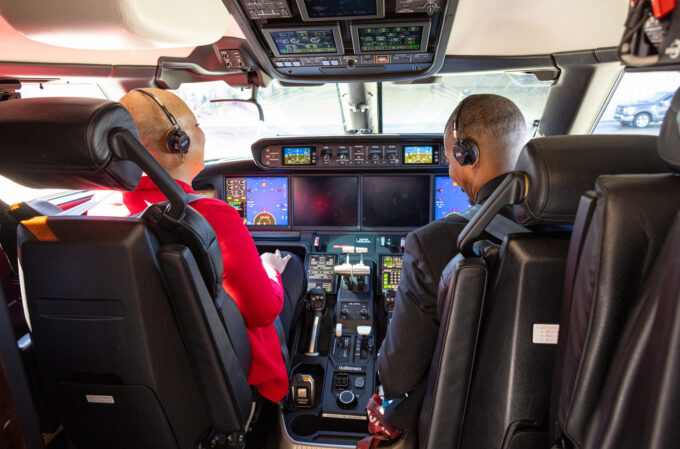March 12, 2024
Many business aircraft operators are embracing stronger family-friendly policies as a valuable recruiting tool that supports better employee work-life balance, especially among younger professionals.
Family-friendly policies extend beyond maternity leave to include a wide spectrum of scenarios that allow employees time, if needed, to care for ailing parents or a sibling – or even to be present for children’s sports. Also, from a bigger-picture business perspective, these kinds of policies can be critical to retaining valuable personnel, according to business aviation managers.
“I’ve been very intentional about creating an atmosphere that the crews know that their families are respected,” says Julia Harrington, lead captain and base manager for Axis Jet at Chicago Executive Airport (PWK).
Harrington says early scheduling is key. “It’s really helpful to give as much notice as possible. We ensure that our pilots get hard days off every month and that their promised time off is respected,” she says. “I’ve always felt very protective of that time, and I’m a real advocate of making sure it is respected.”

While not the only family issue, maternity leave is increasingly important as more women enter the business aviation workforce. A generous maternity leave is “a blip on the radar in the scheme of a lifetime career,” Harrington says.
In fact, the concept of “family-friendly can broadly be looked at as ‘caregiving’ as it can relate to care for a parent, adult sibling or spouse,” says Jo Damato, CAM, NBAA senior vice president for education, training and workforce development.
Human resources professionals who specialize in aviation recruitment are aware of what family-friendly policies bring to the table.
“If work-life balance is of high value for you, and you’re able to achieve it at your current job, you’re likely not going to seek work elsewhere,” says Jennifer Pickerel, vice president at Aviation Personnel International. “When employee values are met with understanding and a degree of compromise, it breeds tremendous loyalty and employee retention.”
Retaining good employees has become an even more pressing issue as the workforce landscape becomes increasingly challenging. Business aviation is projected to need 32,000 additional pilots and 74,000 more maintenance technicians by 2032 to meet industry growth expectations, according to a 2023 study by aviation training provider CAE.
Offering family-friendly policies “is going to be essential to attracting professionals to this industry and to retain them,” Damato says. “It’s not a sign of weakness. It’s a sign of strength. The current and emergent workforce sees themselves as living in the full family responsibility.”
For both managers and employees, the key element to success in this arena is communication.
“Talk. The most effective retention strategy is understanding what your team members truly value, and having transparent conversations,” says Pickerel. “Don’t be afraid to ask. If what you need is to be able to coach Little League on alternate Wednesday afternoons – ask.”



 International Business Aviation Council Ltd.
International Business Aviation Council Ltd.